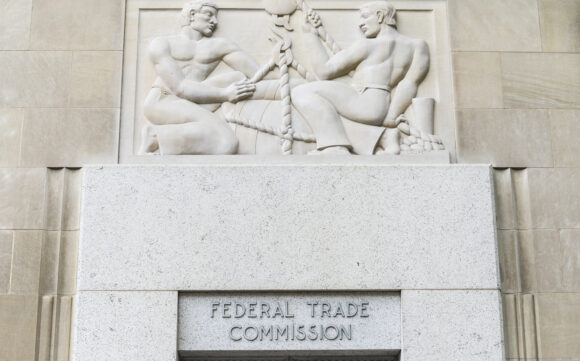The U.S. Supreme Court agreed on Thursday to decide whether the Federal Trade Commission can continue to require scam artists and firms that engaged in deceptive business practices to return money improperly obtained from consumers.
The justices will hear the FTC’s appeal of a lower court’s 2019 ruling that the agency could demand that alleged scam artists stop their behavior using a preliminary injunction but could not clawback any ill-gotten gains in a case involving a company called Credit Bureau Center LLC.
The court also took up a companion case involving a company called AMG Capital Management that appealed a ruling by the San Francisco-based 9th U.S. Circuit Court of Appeals that endorsed the FTC’s authority to recoup ill-gotten gains.
In appealing a ruling by the Chicago-based 7th U.S. Circuit Court of Appeals in the Credit Bureau Center case, the FTC in court papers described the challenge to its practice of demanding return of ill-gotten gains as potentially “eliminating one of its most important and effective enforcement tools.”
In the case at issue, consumers responded to ads for apartments on the advertising website Craigslist, only to find the homes did not exist or were not for rent. But in the process they were required to click a link for a free credit score from company, which also used the names MyScore and eFreeScore. This turned out to be a credit monitoring service costing $29.94 per month.
A federal judge ordered the credit monitoring website owner to pay $5.2 million in restitution.
The Supreme Court’s consideration of the legal disputes comes at a time when the United States is awash in scams, with some taking advantage of fears about the spread of the coronavirus to bilk unsuspecting consumers. Robocalls inundate landlines touting phony medical devices and other deceptive offers. Since they often originate overseas, U.S. law enforcement has difficulty in combating the scam artists.
The cases will be heard together in the court’s next term, which starts in October.
(Reporting by Diane Bartz and Lawrence Hurley; Editing by Will Dunham)
Topics USA
Was this article valuable?
Here are more articles you may enjoy.



 World’s Growing Civil Unrest Has an Insurance Sting
World’s Growing Civil Unrest Has an Insurance Sting  Jury Finds Johnson & Johnson Liable for Cancer in Latest Talc Trial
Jury Finds Johnson & Johnson Liable for Cancer in Latest Talc Trial  Insurify Starts App With ChatGPT to Allow Consumers to Shop for Insurance
Insurify Starts App With ChatGPT to Allow Consumers to Shop for Insurance  How One Fla. Insurance Agent Allegedly Used Another’s License to Swipe Commissions
How One Fla. Insurance Agent Allegedly Used Another’s License to Swipe Commissions 

